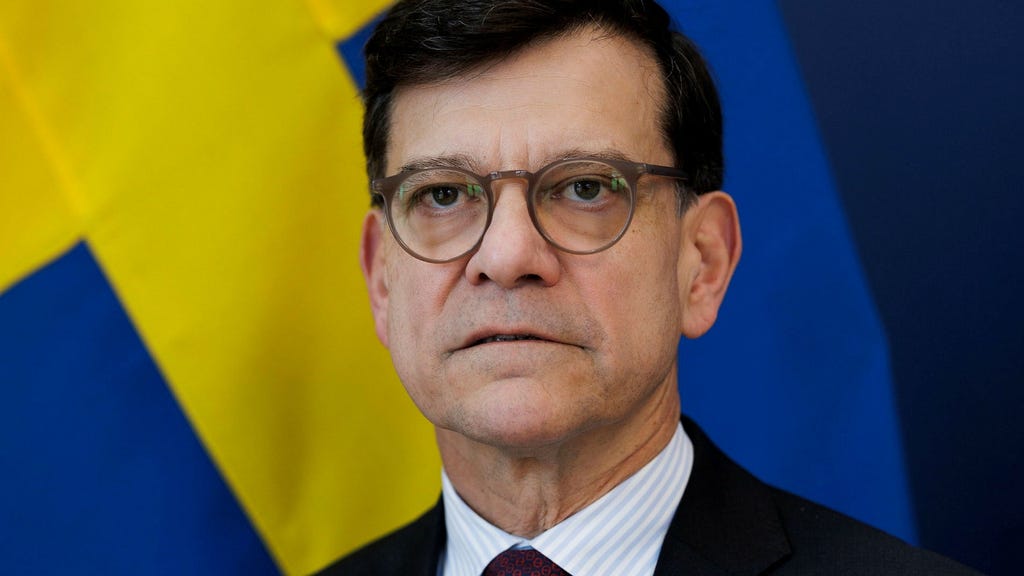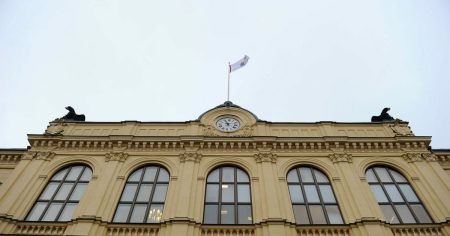The Swedish newspaper Dagens Nyheter (DN) has reported on multiple security lapses involving Henrik Landerholm, Sweden’s National Security Advisor, raising concerns about the handling of sensitive information within the government. These incidents occurred during a crucial period for Sweden as it navigated its application to join NATO, adding another layer of complexity to the situation. The first reported incident involved Landerholm leaving his mobile phone overnight at the Hungarian embassy in late 2022 after attending a dinner. The second incident involved leaving a notebook containing sensitive information, including notes for a radio interview, at the Sveriges Radio studio in early 2023. Both incidents prompted internal security reviews within the government.
The timing of the first incident is particularly noteworthy. Hungary, at the time, was the sole EU member state that had not yet ratified Sweden’s NATO application and had been openly critical of the Swedish government. This delay extended for over a year, adding to the political sensitivity surrounding the incident. While Landerholm retrieved his phone the following day, the potential compromise of sensitive information on the device during its time at the Hungarian embassy raises significant security concerns. The fact that the embassy represented a country with a less than harmonious relationship with Sweden at the time amplifies these concerns.
The second incident, while seemingly less politically charged, still points to a potential pattern of carelessness with sensitive information. Leaving behind a notebook containing notes for a radio interview, though retrieved quickly, demonstrates a lapse in security protocol. The notes, while perhaps not containing top-secret information, could still provide insights into government thinking and strategies, potentially offering an advantage to adversaries. Both incidents underscore a potential vulnerability in the handling of sensitive materials by a high-ranking official entrusted with national security.
Landerholm acknowledged both incidents to DN and stated that he immediately reported them to the Government Offices’ security department. He also claimed that the department assessed the damage in both cases as minor. Fredrik Agemark, the Government Offices’ Security Director, confirmed that the incidents were investigated and deemed low risk. He emphasized that while a dialogue with Landerholm ensued, further details regarding security matters would not be disclosed. This response, while expected, does little to assuage concerns about the potential systemic issues contributing to these lapses. The repeated nature of the incidents raises questions about the effectiveness of the security protocols in place and whether they are sufficient to protect sensitive information.
The DN report also reveals a previous incident where Landerholm handpicked an individual for a position within the government without the necessary security clearance. This action, combined with the later security lapses, paints a picture of potential disregard for established security protocols. While Landerholm and the government maintain that the damage from these incidents was minimal, the repeated occurrences raise concerns about a larger pattern of behavior. The accumulation of these incidents, especially considering Landerholm’s critical role as National Security Advisor, casts a shadow over his judgment and adherence to security protocols. It also raises questions about the oversight within the government and whether sufficient measures are in place to prevent future breaches.
The implications of these security lapses extend beyond the immediate incidents. They raise broader questions about the security culture within the Swedish government, particularly regarding the handling of sensitive information by high-ranking officials. The fact that these incidents occurred during a sensitive period in Sweden’s international relations, particularly its bid to join NATO, adds further complexity to the situation. While Landerholm and the government have downplayed the severity of the incidents, the repeated nature of these lapses warrants a closer examination of security protocols and a renewed emphasis on the importance of vigilance in protecting sensitive information at the highest levels of government. The public deserves assurance that adequate measures are in place to prevent future occurrences and maintain the integrity of national security.














